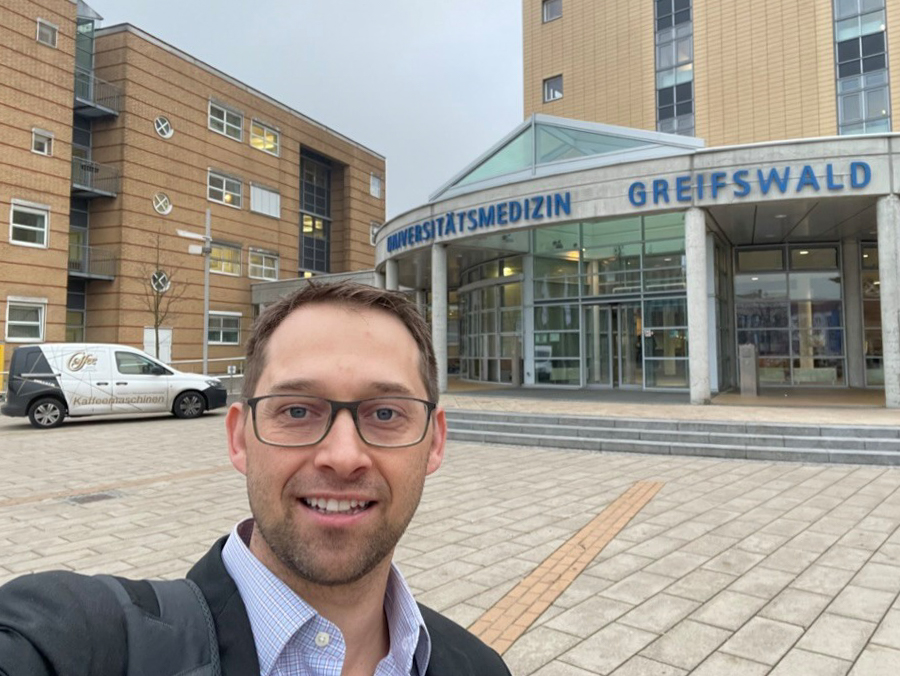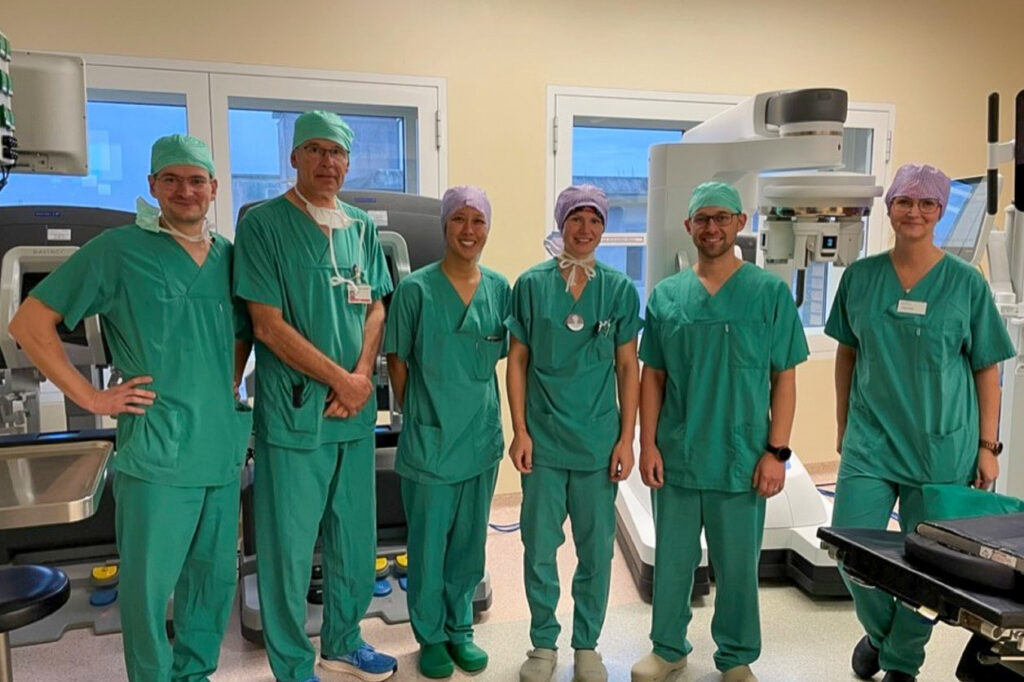Washington University head and neck surgeon Ryan Jackson, MD, recently spent time in Germany and Sweden, promoting the implementation of recent advances in transoral robotic surgery.

Transoral robotic surgery or TORS is a minimally invasive procedure that uses a robot to provide greater precision in the surgical treatment of tumors in the mouth and throat. Robotic instruments can be inserted through the mouth and into the throat and a 3D camera provides the surgeon a high-resolution view of the surgical field. The surgeon manipulates the robotic instruments as extensions of their own hands.
Jackson explained that European countries are currently developing their next generation DaVinci SP robot programs for transoral robotic surgery. A certified trainer in these techniques, Jackson spent time at the University of Greifswald in Germany and at Karolinska Institute in Sweden, the highest ranked hospital and research center in the European Union.
“I was invited to educate and proctor on these advanced robotic techniques,” said Jackson. “During the visit, I provided demonstrations on surgical exposure and advanced techniques in transoral robotic surgery.”

In addition to providing education through lectures on transoral robotic surgery for oropharyngeal cancer, Jackson worked side by side with leading head and neck surgeons on surgical cases, assisting in the operating room on their first patients. Key elements in the TORS education included techniques for patient positioning, tumor exposure, robotic instrumentation, and safe effective oncologic surgery using the DaVinci SP robot.
Jackson looks forward to continuing the educational mission.
“A group of surgeons from Europe will be visiting WashU Medicine/BJC in early 2025 to observe the operating robot,” he said. “This will further our partnership in advancing this specialized field.”
